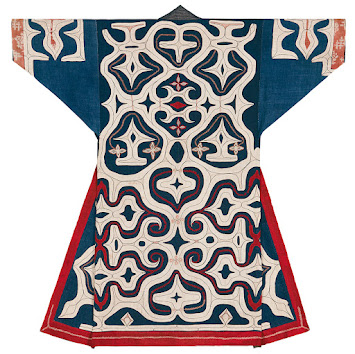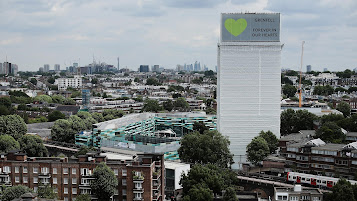J. Christopher Herold,
The Age of Napoleon.1963
Andrew Roberts, Napoleon: a Life. 2014
I embarked last month on a Napoleon Bonaparte double, listening to Andrew Roberts' prize-winning biography and reading Christopher Herold's older "life and times" book. This was valuable because Roberts likes and admires Napoleon and Herold detests him. And yet the difference in opinion makes very little difference to the story. Napoleon's life is so extraordinary, his achievements so immense, that, well, he ended up with an age of European history named after him. Which is my problem: it really doesn't matter that I think he was a despicable rat, because he just did so much that my opinions can't be anything but petty grievances in comparison.
Napoleon was the younger son of a minor Corsican noble family who went hungry in military school because he couldn't afford to buy food, yet he rose to become the Emperor of France and one of history's most famous men. He had an almost unbelievable energy and a mind that, while not especially deep, had an incredible capacity to consider a hundred different things at once, and to give intelligent attention to any topic that came before him. During his time in power he wrote more than 2,500 letters a year; there were days when he was on the march with his army but still managed to send out twenty letters to officials back in France. In any given day his letters might chastise a local official for poor management, demand that a lagging building project at some minor port be speeded up, demand that an allied state supply his army with 40,000 pairs of shoes, assure his wife that his health was good, profess love to one of his mistresses, compliment a leading scientist on the publication of a new book, establish a pension for the widow of a particularly brave common soldier, and suggest to the Paris police that they were looking at the wrong suspects in the murder of an opera singer. One example: on the night before the battle of Austerlitz, Napoleon dictated to one of his secretaries a 120-article constitution for a girls' school he was setting up near Paris while simultaneously dictating military orders to two other aides.
Napoleon brought to a conclusion the process of government reform that began in the 1770s and got a big boost from the Revolution, making France Europe's most modern state and establishing many institutions that still endure. French-style reform swept Europe in the wake of Napoleon's armies. It was imposed by France on states it annexed, willingly copied by allies, and adopted by defeated enemies in a desperate attempt to compete. Everywhere the bureaucrat replaced the nobleman as the chief agent of government power. This was, of course, not Napoleon's personal achievement, and probably would have happened anyway, but these changes came to be associated in many places with him and his invincible armies.
On the battlefield, Napoleon was extraordinary. I have read two different attempts to arrive at a quantitative judgment on who was the greatest commander in history, and Napoleon came out first in one and second in the other. When he was asked who was the greatest captain of the age, his enemy Wellington answered, "in this age, in any age, Bonaparte."
He was even funny. Once when he had negotiated an agreement with the Papacy, the Pope had immediate misgivings and tried to re-open negotiations. Napoleon responded, "But since Your Holiness is infallible, surely you cannot have made a mistake?"
Was Napoleon a warmonger? He did not start the wars of his era; they began in 1792, when the European powers attacked France to stop the Revolution and Napoleon himself was only a lieutenant. The wars of his rise to power were not his fault and he only fought in them as well as he could. The situation after the year-long lull that followed the 1802 Peace of Amiens is more complicated. In most of the wars of 1803-1815 France was not the initial aggressor, and they started when someone else broke a treaty. But other nations kept breaking those treaties because after every victory Napoleon imposed humiliating terms on his rivals that he should have known they would not live with, and after Napoleon's defeat in 1812 the wars re-ignited because of Napoleon's refusal to accept a peace that would damage his "glory." It was only his gloire, Napoleon believed, that kept him in power in France, so he fought to the death to avoid anything that smacked of the humiliations he had so many times imposed on others. My view of those years follows that of Talleyrand, who was Napoleon's own Foreign Minister but essentially went over to his enemies in 1808 because he realized that Napoleon could never accept a workable peace, and his existence in power therefore condemned Europe to unending war.

But, anyway, the question of who started the wars in which Napoleon fought is complicated, and admirers like Andrew Roberts (and Winston Churchill) can make a case that the wars were not really his fault.
So what is my beef?
I hate Napoleon because he treated his fellow humans as expendable pawns on the chess board where he maneuvered for greatness, and millions of them responded to his contempt by idolizing him.
Napoleon was not a particularly vicious dictator; his rule in France was not marked by mass executions or campaigns of torture. He didn't care enough about other people to bother with that sort of thing. He believed that what people wanted from government was order, low taxes, and the sense of being led toward Glory by a Man of Destiny.
What if he was right?
Consider Napoleon's relationship with women. He was appallingly sexist; he said several times that women were only machines for making babies, and he seems to have meant it. The Napoleonic Code was a step forward for Europe in some ways, but in terms of women's rights it was a major step backward, and this was very much because of Napoleon's personal influence. Yet he had dozens of mistresses, many of them famous beauties. His feminine ideal seems to have been his Polish mistress Maria Walewska, who was universally held to be beautiful, sweet, and dumb as a post.
Every single report Napoleon sent out after a battle was a lie. Even when he won great victories he still exaggerated his enemies' losses and understated his own. So far as I can tell, this never hurt him in any way, not even after his soldiers made "to lie like a bulletin" a common phrase.
Napoleon liked to josh with his soldiers, some of whom adored him. He would often say to the men of a regiment, if you do not fight bravely enough, I shall have to come lead you myself and risk my life. They would shout back, no, you are too valuable, we will fight bravely so you can remain safe. So far as we know, nobody ever responded that Napoleon should bear the same risks as his men.
Napoleon's rise to power was achieved via complete contempt for the people, the nation, and everything else besides his own power. His appointment as First Consul after a sleazy coup was approved by a plebiscite in which the official count gave him more than 99% of the vote; since Napoleon's enemies boycotted the vote he probably would have won in an honest count, but that was not good enough, so his agents reported 99%. He did this twice more, when he made himself First Consul for Life and when he made himself Emperor. So far as I can tell the repeated rigging of elections did not hurt him any more than his constant lying. He also kept playing a horrible game in which he hinted to his flunkeys that he wanted something; to be Consul for Life or Emperor, to take the two most famous examples. They would then propose it as if it were their own idea, and Napoleon would reluctantly acquiesce. When it was first suggested in public that he be made Consul for Life he said, "So ten years of service is not enough, and France seeks to extract even more sacrifice from me." Again, I can't see that this foolery hurt him in any way.
Making himself Emperor was of course the most ridiculous act of all. And yet, only a few radical Republicans protested, and only a few old-line royalists laughed. Most people kept straight faces and began addressing him by his royal titles. His followers all accepted the made-up noble titles he bestowed on them, even the ones who had been Revolutionaries. (Marshall Bernadotte accepted a dukedom even though he was said to have "Death to Kings" tattooed across his chest. But that was only the beginning of an aristocratic career that ended with him becoming King of Sweden and founding a dynasty. Napoleon wasn't the only man of the age with no principles.)
Napoleon treated women with contempt and had an absolutely unreasonable number of lovers. He treated France with contempt and was made its leader. He treated history with contempt, leaving behind such a thoroughly lying record that it took historians more than 150 years to get the facts straight, but ended up one of history's most famous actors.
Nobody laughed at Napoleon, or scoffed at his absurdities. Well, a few people did, but this gets us to one of the key reasons Napoleon earned and kept such loyalty: his enemies were worse. Europe's crowned heads were a sorry lot, without a shred of ability among them, and the regimes they headed were reactionary monstrosities. Napoleon was able to find many supporters in Italy, Germany and Poland by making the most paltry gestures toward their rights, since their old rulers would not even do that. Even in Britain the conflict against France brought the dark side of the regime to the fore, with the violent suppression of any kind of workers' agitation, death sentences for hungry people who stole bread, and so on. Everyone remarked on the contrast between the modernizing energy of Napoleon's France and the old empires that were modern only in the way their new police forces battled reform.
But this earns him no credit with me, because for Napoleon modernization was all about the power of the state. Napoleon personally abolished the election of mayors in France, which went back in some areas to the 14th century. The mayors were annoying to his rational system, so he replaced them with sub-intendants he appointed himself. The notion that the people should be consulted about how they should be ruled did not even amuse him; they and their wishes were too far below him for him to even notice.
And so he went on, building more monuments to himself, gathering more power into his hands, placing his incompetent relatives on a slew of thrones, everything for him, everything for his gloire. His career raises the question: is there anything ordinary people can do about history, except either worship great achievers and bask in their radiance, or slink sourly off to our hovels? Was Napoleon right, that the best we can hope for is order, reasonable taxation, and adventures we can follow in the newspapers – like, say, the moon landings? Is the notion that ordinary people might rule themselves simply ridiculous? To the extent that life is a competition, is it always the monstrous narcissists who win?








































.jpg)







